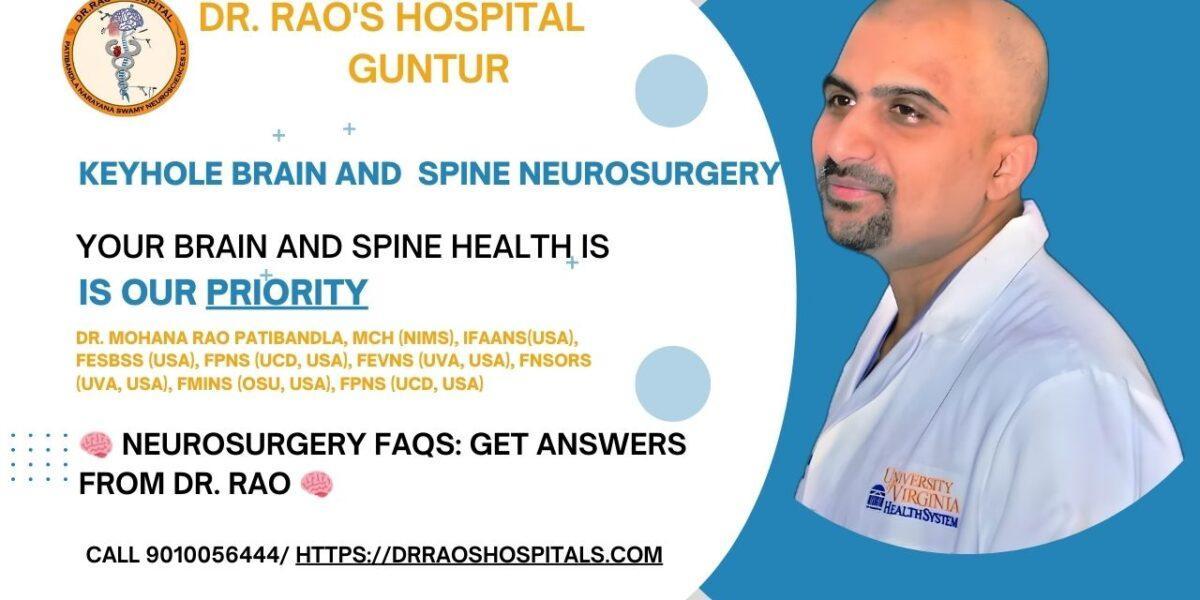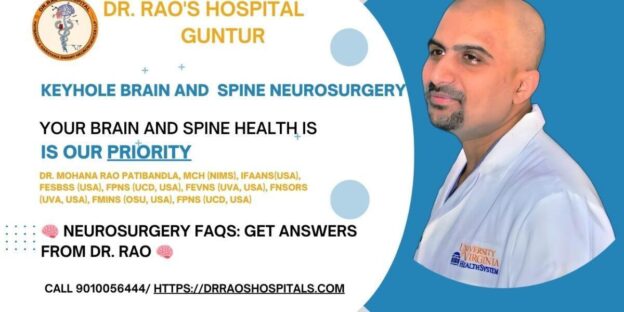Understanding Neurosurgery from the best Neurosurgeon Dr. Rao
Summary: Embark on a compelling journey of comprehending neurosurgery through the expertise of Dr. Rao. Uncover the intricacies, advancements, and real-life narratives that define the realm of neurological care. Elevate your knowledge of neurosurgery with this enlightening exploration.
Understanding Neurosurgery: A Comprehensive Overview for Patients
Neurosurgery is a specialized field of medicine that deals with the diagnosis and surgical treatment of conditions affecting the nervous system. This includes the brain, spinal cord, and peripheral nerves. Neurosurgeons are highly trained surgeons who use their expertise to perform a wide range of procedures, from minimally invasive surgery to complex brain and spinal cord operations.
If you or a loved one has been diagnosed with a neurological condition that may require surgery, it is essential to understand what neurosurgery is and what to expect. This blog will provide a comprehensive overview of neurosurgery, including the different types of procedures, the risks and benefits of surgery, and what to expect during your recovery.
What is Neurosurgery?
Neurosurgery is a complex and challenging field of medicine. Neurosurgeons must have a deep understanding of the anatomy and physiology of the nervous system to safely and effectively perform surgery. They must also be highly skilled in surgical techniques and have a keen eye for detail.
Neurosurgery aims to relieve symptoms, improve function, and prevent further damage to the nervous system. Neurosurgeons may perform a variety of procedures, including:
- Brain tumors: Neurosurgeons can remove brain tumors by craniotomy (opening the skull) or minimally invasive techniques.
- Spinal cord tumors: Neurosurgeons can remove spinal cord tumors by laminotomy (opening the spine) or minimally invasive techniques.
- Aneurysms: Neurosurgeons can clip or coil aneurysms, which are bulges in blood vessels that can rupture and cause a stroke.
- Arteriovenous malformations (AVMs): Neurosurgeons can remove or embolize AVMs, abnormal connections between arteries and veins that can cause bleeding.
- Degenerative disorders: Neurosurgeons may perform surgery to relieve symptoms of degenerative disorders, such as Parkinson’s disease and Alzheimer’s disease.
- Traumatic injuries: Neurosurgeons can treat traumatic injuries to the brain and spinal cord, such as skull fractures, spinal cord compression, and brain bleeds.
Risks and Benefits of Neurosurgery
As with any surgery, there are risks associated with neurosurgery. These risks can include:
- Infection
- Bleeding
- Damage to surrounding tissues
- Complications from anesthesia
- Death
The risks of neurosurgery vary depending on the specific procedure being performed. However, in general, the benefits of surgery often outweigh the risks. For example, surgery can be life-saving for a brain tumor or an aneurysm ruptured. Surgery can also improve the quality of life in patients with degenerative disorders or traumatic injuries.
What to Expect During Your Recovery
The recovery period after neurosurgery varies depending on the type of procedure that was performed. However, most patients must stay in the hospital for a few days after surgery. During your stay in the hospital, you will receive pain medication and other medications to help you recover. You will also receive physical therapy to help you regain your strength and mobility.
Once you are discharged from the hospital, you must continue to follow up with your neurosurgeon. You must also care for yourself at home by following your doctor’s instructions. This may include taking medications, resting, and avoiding certain activities.
Conclusion
Neurosurgery is a complex and challenging field of medicine. However, it can be a life-saving or life-changing treatment for patients with neurological conditions. If you or a loved one has been diagnosed with a neurological condition that may require surgery, it is crucial to understand what neurosurgery is and what to expect. This blog has provided a comprehensive overview of neurosurgery, including the different types of procedures, the risks and benefits of surgery, and what to expect during your recovery.
Dr. Rao’s Hospital
Dr. Rao’s Hospital is a leading neurosurgery hospital in India. The hospital is home to a team of highly skilled neurosurgeons, including Dr. Rao, one of India’s best neurosurgeons. Dr. Rao’s Hospital has state-of-the-art facilities and uses the latest surgical techniques. The hospital has a reputation for providing excellent patient care.
Dr. Rao’s Hospital is an excellent option if you are considering neurosurgery. The hospital has a team of experts who can help you understand your condition and the best treatment options. The hospital also has a reputation for providing excellent patient care.
Contact Us
If you want to learn more about neurosurgery or schedule an appointment with Dr. Rao, please contact us today at 9010056444 or 9010057444 or drraoshospitals. We would happily answer any questions and help you get your needed care.


